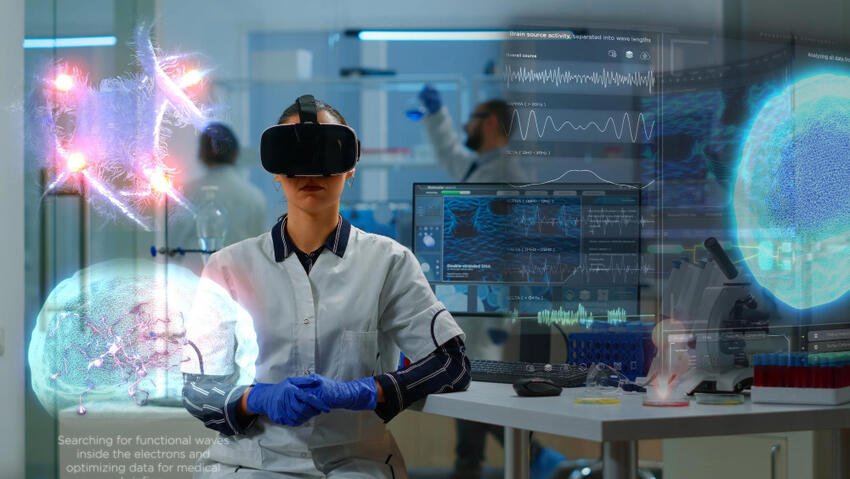Gene synthesis has quickly moved from being a specialized lab technique to a powerful driver of progress in healthcare and biotechnology. At its core, it’s about designing and constructing DNA sequences with purpose, allowing scientists to go beyond observing life’s code to actually writing it. That shift is opening doors across medicine, research, and industry. For scientists and curious readers alike, understanding how gene synthesis is shaping these breakthroughs can shed light on where the next wave of discoveries will come from. Here are four key areas where it’s making a difference.
Medical Innovation and Genetic Discovery
When we talk about innovation in healthcare, it’s easy to think of new drugs or medical devices, but the deepest changes are happening at the genetic level. Gene synthesis has allowed researchers to test ideas that were once out of reach by building DNA sequences from scratch and studying how they behave in living systems. This isn’t just about treating disease. It’s also about discovering entirely new ways to understand health itself.
For example, scientists can now create synthetic versions of rare genes to better understand how they contribute to inherited disorders. That gives patients with uncommon conditions a chance to benefit from research that might otherwise be too costly or impractical. It also feeds into the work of innovators in medicine who are pushing the boundaries of personalized care, showing how genetic engineering can help design therapies suited to the individual instead of the average patient.
Pharmaceutical Development at a New Scale
The pharmaceutical industry is under constant pressure to deliver treatments faster and more effectively. Gene synthesis is giving them new tools to do exactly that. Instead of waiting on natural samples or relying on lengthy trial-and-error processes, scientists can build genetic material to test drug candidates in controlled conditions. This approach speeds up the early stages of drug discovery and helps focus resources on the therapies most likely to succeed.
What makes this possible is the growing infrastructure of gene synthesis companies that provide researchers with accurate, customizable sequences for experimentation. These services allow labs to order the DNA they need quickly, removing bottlenecks that once slowed progress. Imagine a researcher working on an antiviral drug. Instead of hoping to find a sample of the virus they want to target, they can have a piece of its genetic code synthesized and start testing within weeks. That speed and precision have a ripple effect on the entire pipeline of drug development, from preclinical research to clinical trials.
Synthetic Biology and New Frontiers in Biotech
Beyond medicine, gene synthesis is the foundation of synthetic biology, a field that designs organisms to perform tasks that nature never intended. Scientists are creating bacteria that can produce therapeutic proteins, yeast that churn out valuable compounds, and even plants that resist harsh environments. These advances might sound futuristic, but they’re already moving from lab benches into industrial applications.
For biotech companies, the appeal lies in efficiency and sustainability. Instead of extracting rare compounds from endangered plants or mining resources in environmentally damaging ways, organisms can be engineered to produce the same substances in a controlled setting. That means cheaper medicines, cleaner fuels, and new materials that reduce reliance on traditional supply chains. Investors and researchers see synthetic biology as a platform technology that can scale across industries once the fundamental tools, like gene synthesis, are in place.
The Ethical and Practical Questions Ahead
No discussion of gene synthesis would be complete without addressing the challenges it raises. With the ability to design DNA comes responsibility, and society is still working out the rules for how far we should go. There are concerns about biosecurity, accidental consequences, and the broader question of how to balance innovation with caution. These debates aren’t meant to slow down progress but to ensure it happens safely and responsibly.
On a practical level, regulations, safety protocols, and transparency will play a big role in shaping which projects earn public trust. For scientists, that means careful oversight. For investors and policymakers, it means looking at not just what can be done but what should be done. The good news is that many in the field are aware of these issues and are working to address them head-on. The ongoing conversation about ethics doesn’t undermine the power of gene synthesis. Instead, it strengthens it by helping ensure that the breakthroughs it fuels are sustainable and beneficial.
Read Dive is a leading technology blog focusing on different domains like Blockchain, AI, Chatbot, Fintech, Health Tech, Software Development and Testing. For guest blogging, please feel free to contact at readdive@gmail.com.





